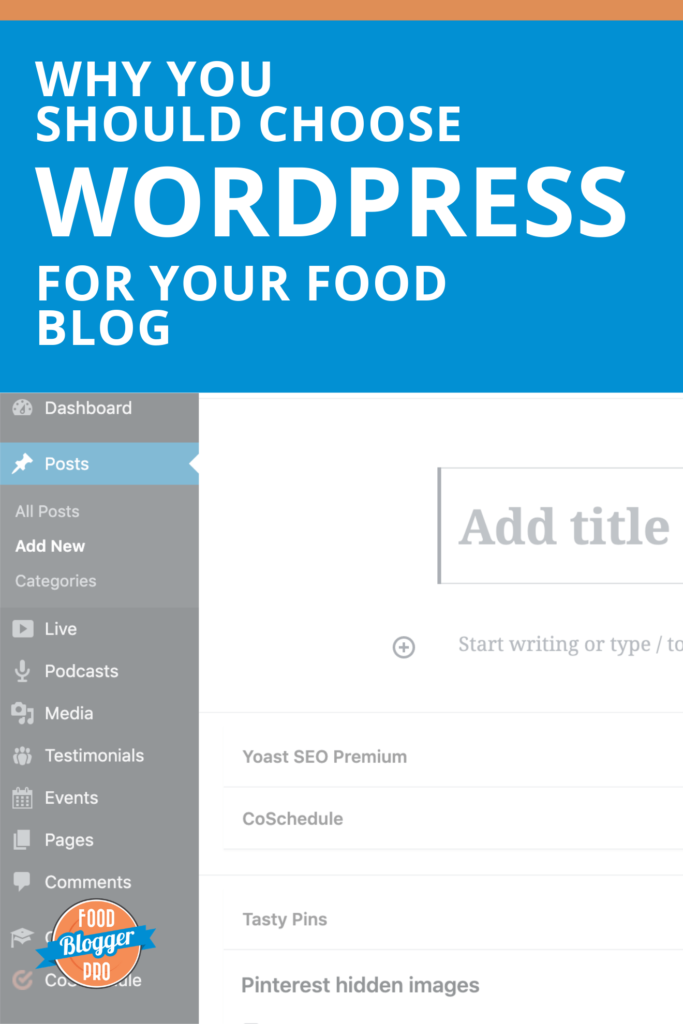
When you want to start a food blog, one of the most important first decisions you need to make is which platform you’re going to use to build your blog.
If you think of your food blog like your cell phone, your blogging platform acts like an operating system (iOS, Android, etc.). You need a place for your content – your posts, your images, your pages – to live. And that place is your blogging platform (also called a Content Management System or CMS).
There are a bunch of different options available to bloggers these days, but we prefer WordPress. It’s what we use for our food blog, Pinch of Yum, and it’s actually the platform we use to run this membership site.
Before we dive into why we love WordPress, it’s important to note that we’re talking about WordPress.org (not WordPress.com). While similar, WordPress.org will give you all of the benefits listed below and is our recommended CMS for food bloggers.
WordPress is, in our opinion 😉, the best place you can start your food blog, and here’s why:
1. WordPress is huge

Yep, that says that WordPress powers over 35% of the entire internet. According to Internet Live Stats, there are 1,735,910,374 websites online at the time of writing this article. That means that over 600 million of those websites are powered by WordPress.
That’s an…incredible statistic. And a true testament to the number of people who trust WordPress to power their personal and business sites!
2. WordPress is flexible and open-source
One of the best and most unique things about WordPress is the fact that it’s an open-source software.
Now…what the heck does that mean?
Good question. 😊 Open-source means that the code for the software’s functionality and design is publicly accessible, making it endlessly customizable and flexible. Given the right developer (and right amount of time and resources), you can modify your WordPress site to your heart’s content!
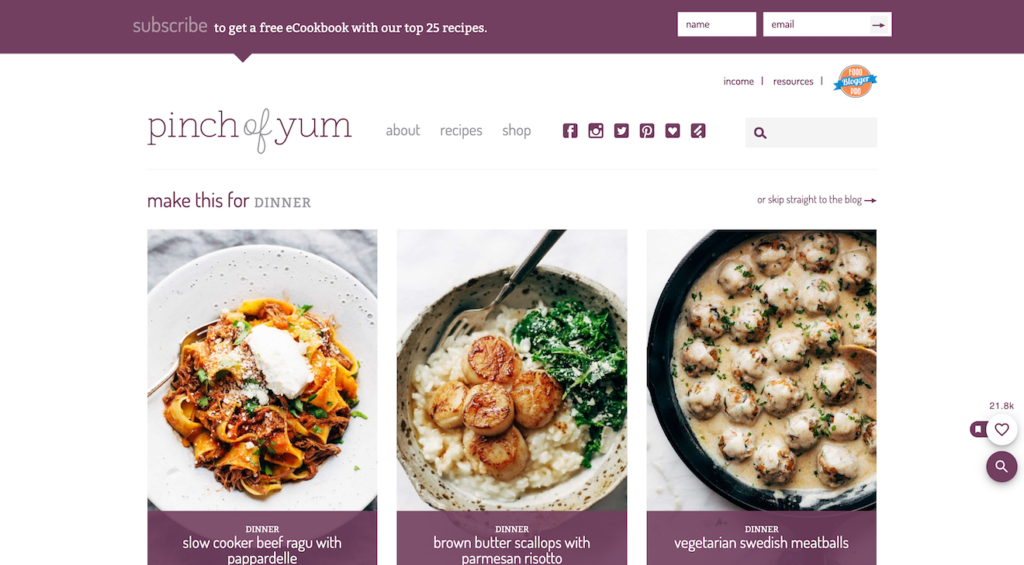
This is important for food bloggers because we have unique needs in terms of website functionality. Food blogs should:
- Have an easy-to-use way for readers to find recipes
- Display food photos in a beautiful, hunger-inducing way
- Allow ads, sales pages, email opt-in forms, and shop pages
- And more!
WordPress gives food bloggers all the flexibility they need to create their dream blogs.
3. WordPress has a huge supporting community of third-party plugins and themes
Along those same lines, the WordPress community is strong and mighty thanks to the thousands of third-party plugins and themes available to install on your WordPress site. Because WordPress is open-source (see #2!), developers can create plugins and themes that other WordPress users can download and use on their own sites.
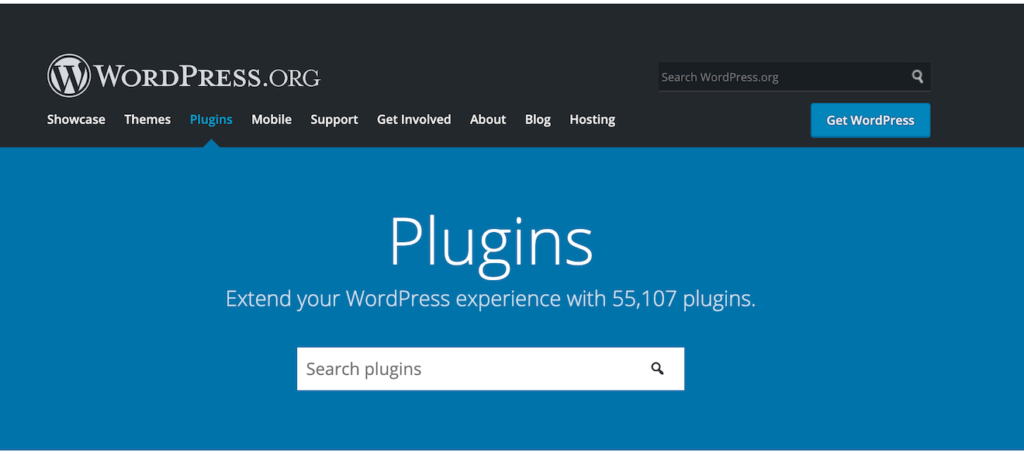
Plugins are like apps on your phone; they give your blog additional functionality outside of the core WordPress install. You can find plugins that help you optimize for SEO, publish recipes, optimize your images, and more. Themes give your blog its characteristic look and feel.
Plugins and themes come in both free and premium versions, so be sure to do some research and find the plugins that give you the functionality you need.
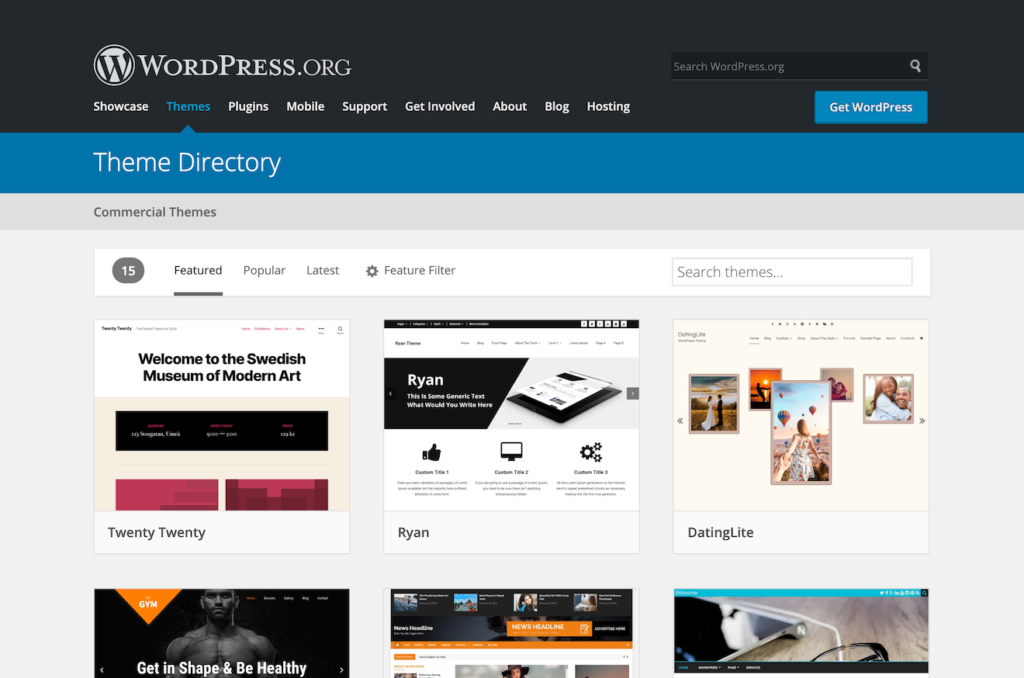
There are a few essential plugins that food bloggers should look into adding to their blogs, and you can find our list here. One of the most important plugins for food bloggers is a recipe plugin, and we have a comprehensive blog post all about choosing the best recipe plugin for you here.
For themes, we really like the WordPress Theme Directory, StudioPress, and Themeforest.
4. WordPress is (relatively) easy to use
As with any new piece of technology, it’s going to take some time to get comfortable with the terminology and the functionality.
That said, WordPress is fairly simple to install and use. Most hosts have a one-click WordPress install button, and from there, you just need to spend some time getting comfortable with using it.
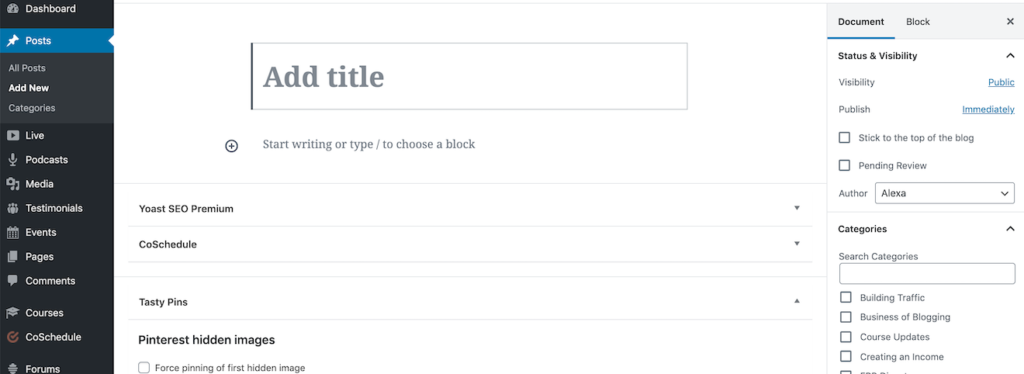
If you need some help along the way, we have a WordPress Deep Dive course that covers everything from menus and toolbars, to posts vs. pages, to categories and tags, and more!
WordPress is our CMS-of-choice for food blogging because it gives you the freedom to make your blog your own. Regardless of the functionality you wish to add to your site, WordPress’ open-source code and plugin community will give you the flexibility you need.
Now a question for you: Do you use WordPress? What do you like/dislike about it?
Thanks for the quick tips.
Thanks so much for reading, Tom! 😊
Was looking for some takes regarding this topic and I found your article quite informative. It has given me a fresh perspective on the topic tackled. Thanks!
So glad to hear this, Eleanor!
“I just started a food blog and am excited to share my culinary adventures! From recipes and reviews to cooking tips, I can’t wait to dive into the world of food and connect with fellow food lovers.”
Hi Rehana, excited to hear you just started a food blog – best of luck!